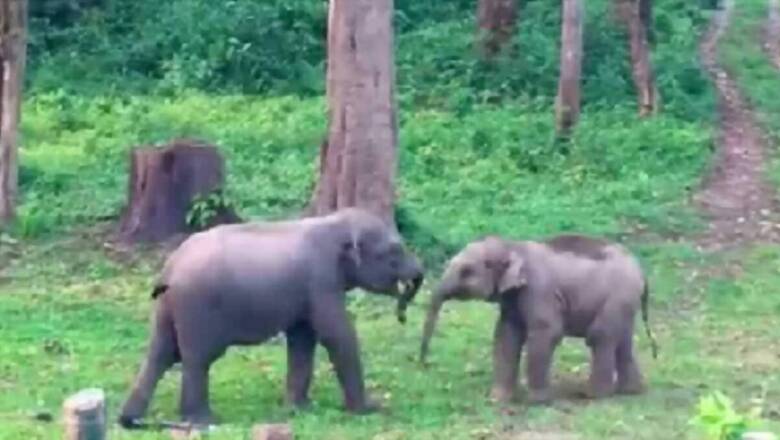Synchronised Elephant Census in Tamil Nadu, Kerala, Karnataka: Three-day Mammoth Exercise Ends Today

views
The three-day Synchronised Elephant Census in Tamil Nadu in collaboration with teams from Kerala and Karnataka ends on Friday with the volunteers, students, and forest officials doing the waterhole count method. Under this approach, the teams identify water bodies, salt pits, and open areas that are frequented by elephants.
There are a total of 699 blocks, and 2,099 forest officials, volunteers, and students have been involved in the census. In the past two days, the teams used the sightings method under which each group walked for at least 15 km and recorded the total number of elephants seen in that forest area.
A synchronised census has been organised to avoid double counting as elephant habitats often stretch over two states.
“We have asked the teams to record the age, sex, and other details of each and every elephant seen in that block under this method,” said state forest department secretary Supriya Sahu. Senior forest department officials were involved in training volunteers and college students who are partaking in the census,” said the secretary.
The census in Tamil Nadu is carried out in the Srivilliputhur-Megamalai Tiger Reserve, Mudumalai Tiger Reserve, Kalakkad Mundanthurai Tiger Reserve, Sathyamangalam Tiger Reserve, as well as the forest areas in the districts of Salem, Dharmapuri, Vellore, and Dindigul districts in which elephants are found.
The volunteers were trained and were given equipment like GPS, measuring tape, wristwatch, binoculars, camera, and a sickle. They have been instructed not to wear bright clothes, avoid strong fragrance from perfumes, be silent, alert, vigilant, and keep a safe distance from the wild animals.
“The volunteers have been advised not to use plastics while being involved in the census work. Also, they have been instructed not to throw away biscuit or chocolate covers in the forest areas,” said the secretary.
On Thursday, the teams used the ‘line transect dung count’ method for the census under which they collected elephant dung samples of not less than 60 from the same area. The volunteers have been instructed to mention if the dung pile seen is less than 24 hours old.
Teams have moved in the field with experts and volunteers. Perambulation of sample blocks is being done. Around 40 teams have been constituted in the Coimbatore forest division.
As per the nationwide synchronised elephant census done in 2017, there were 2,761 tuskers in Tamil Nadu. The state forest department has identified 708 blocks from 26 forest divisions in the state for the census. As many as 42 blocks are situated in the Coimbatore forest division. Each block would have a team consisting of forest department staff, anti-poaching watches, and two representatives of NGOs or college students.
“In two weeks, we would come to know how many elephants are there in the state forest areas,” said the secretary.



















Comments
0 comment